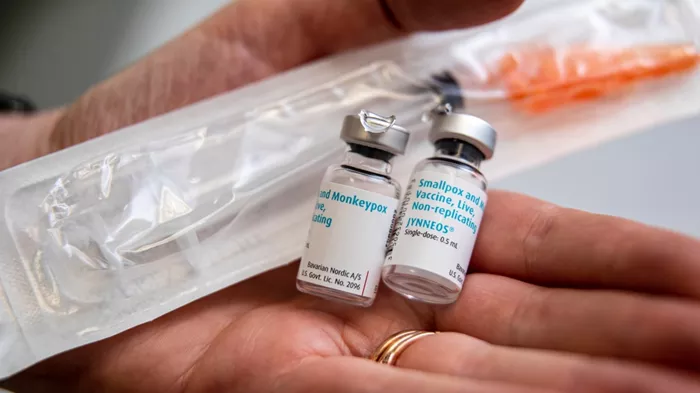The European Centre for Disease Prevention and Control (ECDC) has updated its recommendations regarding Mpox, formerly known as monkeypox, advising travelers to consider vaccination as a precautionary measure. This comes in response to the ongoing outbreak of a new, more virulent strain of the virus, Clade 1b, which has raised concerns among public health authorities worldwide.
Global Spread and Risk Assessment
While the ECDC acknowledges that the risk of Mpox spreading beyond the affected regions is currently low, the situation remains fluid, and the World Health Organization (WHO) has declared a global emergency over the outbreak. Clade 1b has already led to the deaths of at least 450 people in the Democratic Republic of Congo (DRC) in recent months, prompting increased vigilance among international health agencies.
Despite these concerns, the ECDC maintains that the general risk to the European population remains low. However, due to the rapid spread of Clade 1b in Africa and the close ties between Europe and the continent, the ECDC has elevated the risk level for travelers to affected areas. Pamela Rendi-Wagner of the ECDC emphasized the importance of preparedness, stating, “Due to the rapid spread of this outbreak in Africa, ECDC has increased the risk level for the general population in the EU/EEA and for travelers to affected areas. We must be prepared for more imported Clade 1 cases.”
Transmission and Symptoms
Mpox is primarily transmitted through close physical contact with an infected person, including skin-to-skin contact, sexual contact, and contact with contaminated materials such as clothing, bedding, or towels. The virus can also be spread through respiratory droplets when an infected person coughs or sneezes.
Symptoms of Mpox include flu-like symptoms, such as fever, headache, and muscle aches, followed by the appearance of skin lesions. These lesions can be painful and may lead to severe complications in some cases. While Mpox is typically less deadly than diseases like smallpox, the new Clade 1b strain appears to be more easily transmissible and may cause more severe illness.
Vaccination Recommendations
For those considering travel to regions where Mpox is spreading, vaccination is strongly recommended. The ECDC advises that individuals who have previously been vaccinated against Mpox may require only a single booster dose rather than the full two-dose regimen. For those at ongoing risk of exposure, booster vaccinations are usually recommended every two to ten years, depending on the level of risk and individual health circumstances.
Given the increased risk posed by Clade 1b, the ECDC is urging public health authorities in Europe to develop comprehensive plans for quickly detecting and containing any potential cases that may enter the region. This includes ramping up vaccination efforts, particularly in areas with strong travel links to Africa.
Preparedness and Public Health Response
In light of the recent outbreak, several European countries have begun to take precautionary measures. Sweden recently reported a case of Mpox in a patient who had been infected while staying in an area of Africa where the virus is known to be spreading. This case has underscored the need for vigilance and swift action to prevent further spread within Europe.
The last public health emergency related to Mpox occurred in 2022, caused by a milder strain known as Clade 2. While vaccines are available and effective, there are concerns about the limited availability of doses, particularly in regions where they are most needed. The ECDC has called for increased efforts to ensure that vaccines reach high-risk populations and that public health systems are adequately prepared to respond to new cases.
Conclusion
As the world continues to grapple with the ongoing Covid-19 pandemic, the emergence of a new, more virulent strain of Mpox serves as a stark reminder of the importance of global health preparedness. Travelers are advised to stay informed about the latest developments and to consider vaccination if they are heading to regions where the virus is prevalent. Public health authorities must remain vigilant and proactive in their efforts to prevent the spread of Mpox, particularly as international travel continues to rebound.
The ECDC’s updated advice highlights the delicate balance between managing existing public health threats and preparing for new ones. While the overall risk of Mpox spreading in Europe remains low, the situation underscores the importance of ongoing vigilance and preparedness in the face of emerging infectious diseases.
Related Articles:
West Nile Virus Outbreak Claims 32 Lives in Israel
What Does Rotavirus Poop Look Like?
Mpox Risk Low but UK Medics on Alert


